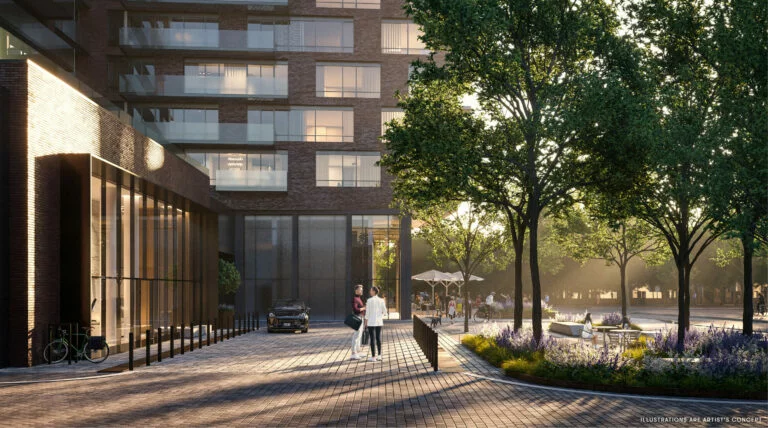The real estate industry has always been dynamic, but the future promises even more exciting developments. As technology continues to advance and consumer preferences evolve, the Canadian real estate landscape is set to undergo significant transformations. In this blog post, we will explore some of the emerging trends and innovations that are poised to shape the future of real estate, ranging from virtual reality tours and smart homes to sustainable building practices and changing consumer preferences.
Virtual reality (VR) tours have emerged as a game-changer in the real estate industry. Gone are the days when potential buyers had to physically visit multiple properties to get a sense of their features and layout. With VR tours, buyers can now explore properties from the comfort of their own homes. By putting on a VR headset, individuals can virtually walk through a property, examine each room, and even experience a 360-degree view of the surroundings. This technology not only saves time and effort for both buyers and sellers but also opens up new possibilities for international buyers who can now explore Canadian properties without being physically present.
Smart homes have also gained popularity in recent years, and their impact on the real estate market is expected to grow exponentially in the future. A smart home integrates various devices and systems, such as lighting, heating, security, and entertainment, into a centralized network that can be controlled remotely. This level of automation and connectivity not only enhances convenience but also improves energy efficiency and security. Homebuyers are increasingly seeking properties equipped with smart home features, as they offer enhanced comfort, cost savings, and peace of mind. As a result, real estate developers and homeowners are investing in smart home technologies to stay ahead of the curve and meet the rising demand.
Sustainable building practices are becoming a top priority in the real estate industry, driven by the need to mitigate climate change and reduce carbon footprints. Builders and developers are adopting green building standards, such as Leadership in Energy and Environmental Design (LEED) certification, which ensures that buildings are designed and constructed with sustainability in mind. Features like energy-efficient appliances, solar panels, green roofs, and rainwater harvesting systems are becoming increasingly common in new construction projects. Additionally, there is a growing interest in repurposing existing buildings and revitalizing underutilized urban areas, promoting sustainable urban development and creating more livable communities.
Consumer preferences in the real estate market are also undergoing a significant shift. Millennials, the largest segment of homebuyers, have distinct preferences compared to previous generations. They prioritize walkability, access to public transportation, and proximity to amenities such as restaurants, cafes, and parks. As a result, urban areas with vibrant and diverse communities are witnessing increased demand. Furthermore, with remote work becoming more prevalent, the concept of home has evolved, and people are increasingly seeking homes with dedicated office spaces or flexible layouts that can accommodate their work-from-home needs. Real estate developers are adapting to these changing preferences by incorporating coworking spaces, communal areas, and flexible floor plans into their projects.
In addition to these emerging trends, the Canadian real estate market is experiencing a digital transformation. Online platforms and mobile apps have revolutionized the way properties are listed, searched, and transacted. Buyers can now browse thousands of listings, view high-quality images and videos, and even connect with real estate agents through these platforms. Digital transactions and electronic signatures have streamlined the buying and selling process, making it more efficient and convenient for all parties involved. As technology continues to evolve, we can expect further innovations in the digital realm, such as blockchain-based property records and artificial intelligence-powered property valuation tools.
While these trends and innovations are poised to shape the future of real estate, it is important to note that the human element remains crucial. Real estate transactions involve significant financial investments and emotional decisions, and the expertise and guidance of real estate professionals are invaluable. Technology may enhance the process, but it cannot replace the personalized service and knowledge that agents and brokers bring to the table. The successful real estate professionals of the future will be those who embrace technology as a tool to better serve their clients and adapt to the changing industry landscape.
The future of real estate is set to be a fascinating blend of technology, sustainability, and changing consumer preferences. Virtual reality tours, smart homes, sustainable building practices, and evolving consumer demands are just a few of the trends and innovations that will shape the industry. By staying informed about these developments, potential buyers and sellers can make better-informed decisions and stay ahead of the curve. The real estate professionals who embrace these changes and leverage technology to enhance their services will be well-positioned for success in the evolving real estate market.






